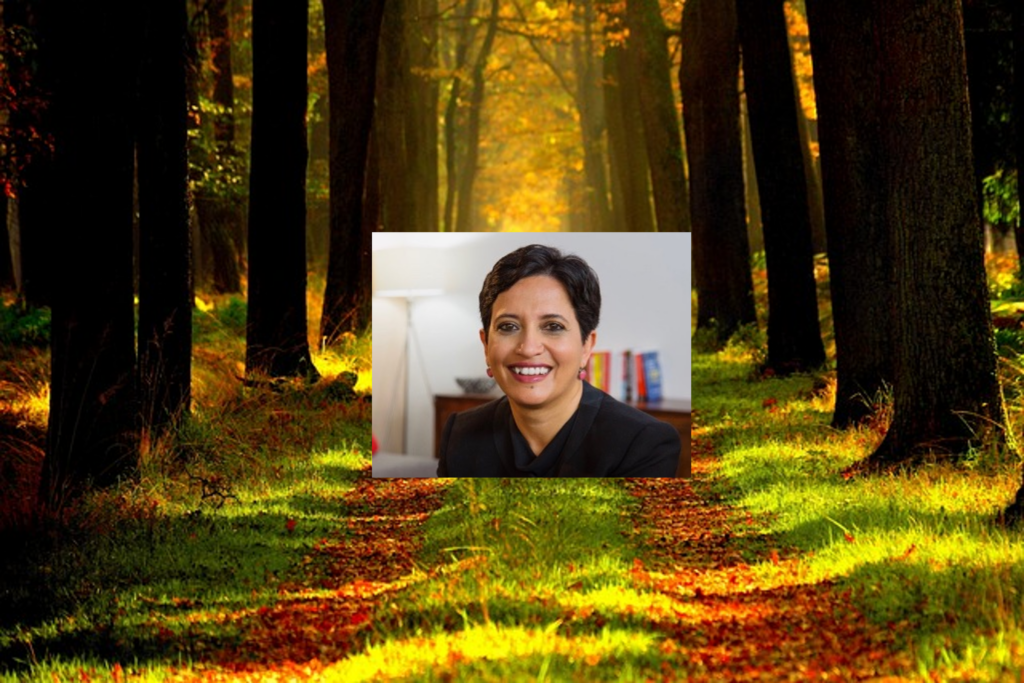Entrepreneur Journeys
The Startup Velocity Question: What Hinders Acceleration in VC Funded Companies?

I have been running 1Mby1M since 2010. I find myself saying to entrepreneurs ad nauseam that VCs want to invest in startups that can go from zero to $100 million in revenue in 5 to 7 years.
Startups that do not have what it takes to achieve velocity should not be venture funded.
Experienced VCs, over time, have developed heuristics to gauge what constitutes a high growth venture investment thesis.
>>>1Mby1M Udemy Courses with Sramana Mitra: Bootstrapping

Over the course of two years, we have released over 70 courses on Udemy with the aim to democratize entrepreneurship education at scale globally. This series of posts aims to help you find the one you need easily and provide you with discount coupons.
>>>Bootstrapping a $7 Million Company in Houston: Gaurav Khandelwal, CEO of ChaiOne (Part 1)
If you haven’t already, please study our Bootstrapping Course and Investor Introductions page.
This is an interesting strategy discussion about a company that is doing substantial revenue based on services, has productized a piece of its services business that is also generating over a million in revenue. Where next?
Sramana: Gaurav, let’s go to the beginning of your story. Where were you born? What kind of background were you raised in?
Gaurav Khandelwal: I was born in Kolkata, India. I came to the US for my undergrad. I grew up in a large city and I really wanted to experience something different, so I applied and went to school in a very small town in northern Indiana that was in an Amish community called Goshen College. Different universities come through India and interview students and applicants. That gives students a chance to meet with deans and hear about the schools. I met with several of them and this particular school was very interesting. They had a program that required every single student to spend a semester abroad to graduate. I had never heard of that before. I thought it was fantastic to know that every single student at that school had spent a semester in Indonesia, China, or some other country. >>>
Featured Videos
Can 1M/1M Help Me Raise Money?
How Does 1M/1M Democratize Entrepreneurship Education?
How Does 1M/1M Democratize Management Consulting?
When Is The Right Time To Join 1M/1M?
Can 1M/1M Help Me With Business Development?
Can 1M/1M Help Me With Market Sizing?
Can 1M/1M Help Me Validate My Product?
Will I Have Private 1-on-1 Sessions In 1M/1M?
How Does 1M/1M Help Entrepreneurs Connect With Silicon Valley?
Mentoring or Consulting?
Why Does 1M/1M Charge $1000 a Year?
Why Does 1M/1M Partner With Local Organizations?
Why Don\’t Mentoring Networks Work?
Why Is It Important To Study With 1M/1M Now?
Dan Stewart Story
Vikrant Mathur Story
Trying to Turn Carriers and Retailers Into Google: Azzimov CEO Benoît l’Archevêque (Part 1)
If you haven’t already, please study our Bootstrapping Course and Investor Introductions page.
We normally only feature companies that have proven concepts in the Entrepreneur Journeys series. This concept, however, is not entirely proven. It is interesting and bold.
Sramana Mitra: Benoit, where are you from? Where were you born and raised? Give us some back story of the Azzimov journey.
Benoît l’Archevêque: It’s a rather peculiar story because I’m a French Canadian. I come from a very low class family from Montreal, Canada. I was actually raised by a plumber and my mother was a Customs Officer – very creative people but not really much into businesses. I was surrounded by people that never really did anything to create a company. They’re not entrepreneurs. I come from a weird place where I didn’t know, at a young age, what an entrepreneur was. The only thing I wanted to do in life was cartoons. I studied Art. >>>
Crossing the Desert, Hitting the Jackpot: Taboola CEO Adam Singolda (Part 1)
If you haven’t already, please study our Bootstrapping Course and Investor Introductions page.
Taboola had to sustain four years of zero-revenue, until it hit a million dollar revenue year in 2012. In 2013, their revenue run-rate is $100 million.
It’s an amazing story! Read on…
Sramana: Adam, let’s start with a bit of your personal background. What kind of family did you grow up in?
Adam Singolda: I was born in Israel, just south of Tel Aviv. I am 32 now. My family is still in Israel and they have split origins between Morocco and Europe. I joined the Israeli Army but I did it a bit different than most. In Israel, everyone has to go through the Army for 2 or 3 years. I was there for close to 7 years and I worked for a unit that was in charge of protecting Israel’s information using encryption. It was a great opportunity for me because I learned the importance of people as opposed to the problem you are trying to solve. >>>
Student Entrepreneur to $10M+ Business: Blaine Vess, CEO of StudyMode (Part 1)
If you haven’t already, please study our Bootstrapping Course and Investor Introductions page.
We’re seeing a wonderful trend of student entrepreneurs building substantial businesses without dropping out. Blaine Vess is yet another great role model. This story outlines Blaine’s entrepreneurial journey.
Sramana Mitra: Blaine, let’s start with introducing our audience to you. Where did you grow up? Where were you born? What kind of back story leads up to StudyMode?
Blaine Vess: I’m Blaine Vess, the CEO of StudyMode. I grew up in the suburbs of Chicago, which is where I co-founded StudyMode with my friend Chris Nelson. At that time, we were going to North Central College. From there, I ended up moving to Northern California and graduating from San Jose State University with a degree in Marketing. I originally focused on Computer Science and learned that I could program, but it wasn’t my specialty. So I switched over to Marketing and ended up moving to Los Angeles.
Bootstrapping a Robust SaaS company from India: Rategain CEO Bhanu Chopra (Part 1)
If you haven’t already, please study our Bootstrapping Course and Investor Introductions page.
Rategain is one of the top global SaaS companies built out of India. This interview captures CEO Bhanu Chopra’s entrepreneurial journey.
Sramana: Bhanu, let’s start with the beginning of your story. What kind of circumstances where you raised in? What is the genesis of your entrepreneurial journey?
Bhanu Chopra: I am a Delhi boy, I was born and raised in a business family in Delhi. Right after I completed school, I went to the US for my undergraduate studies. I went to the Indiana University and have a double degree in finance and computer science. When I was growing up, I was very good with numbers. The advice that my father gave me was to get into something like finance. Computers are a derivation of mathematics. That is why I got interested in computers. >>>
Building an American E-commerce Company that Now Sells into China: Peter Mann, CEO of Oransi (Part 1)
If you haven’t already, please study our Bootstrapping Course and Investor Introductions page.
Peter Mann started Oransi as a B-to-C e-commerce company. Today, 40% of his $10M revenue comes from China. This is the kind of company America hopes to see more of – selling American products to international consumers.
Sramana Mitra: Peter, let’s start with your background. Where were you born and raised? What kind of background leads up to your entrepreneur story?
Peter Mann: I was born in Syracuse, New York. I lived in the same house till I was 18 and went off to college. My father was a mechanical engineer. He was a manager at General Electric. He comes from a time when people worked 40 years in a company and then get their retirement package. He was also a professor of Mechanical Engineering at Syracuse University. We were heavily involved with the university. I grew up around a university atmosphere during my childhood.
Bootstrapping to $13 Million in 4 Years in Niche E-commerce: Pavel Sokolovsky, CEO of eComfort.com (Part 1)
We continue to be bullish about niche e-commerce as a category to build sustainable businesses in. This story is a further illustration of the trend.
Sramana: Pavel, let’s start at the beginning of your story. Where are you from? What is the genesis of your entrepreneurial aspirations?
Pavel Sokolovsky: I was born in Minsk, Belarus. I moved here with my family at a very young age in 1989. I grew up in the suburbs of Chicago. My father had an entrepreneurial background. In the mid-1990s, he started his own contracting business doing heating and cooling work. That was his second or third business by that time. I grew up watching him go through the trials and tribulations of entrepreneurship. I was inspired by it and when the time came, I wanted to have a shot at it. >>>
Building a $10M Company Proctoring Exams Online: Don Kassner, CEO of ProctorU (Part 1)
If you haven’t already, please study our Bootstrapping Course and Investor Introductions page.
One of the chief bottlenecks of the adoption of online education has been the lack of ability to handle testing in a secure fashion. ProctorU addresses that gap and is growing at a nice clip.
Sramana Mitra: Don, let’s start at the beginning. Tell me about yourself. Where are you from? Where were you born and in what kind of circumstances? It sounds like you have multiple co-founders, so if you could also introduce the cast of characters, that would be great.
Don Kassner: My name is Don Kassner. I’m from the San Francisco Bay Area. I studied and taught at San Jose State University where I earned my bachelor’s and master’s in Economics. In 2005, I had the opportunity to take over a small accredited correspondence college in Birmingham, Alabama called Andrew Jackson University. I moved out to Alabama to take over as President and converted the university from paper-based to wholly online. During that time, I hired a guy named Jarrod Morgan. Jarrod became the Director of Technology.
Bootstrapping a Category Leading E-commerce Company: Tony Ellison, CEO of Shoplet (Part 1)
If you haven’t already, please study our Bootstrapping Course and Investor Introductions page.
The Shoplet case study is interesting because it illustrates how an entrepreneur has bootstrapped a category leading e-commerce venture by trading off margins in favor of minimizing logistical challenges.
Sramana: Tony, let’s start with the beginning of your story. Where were you born and raised? What is the backstory of the Shoplet story?
Tony Ellison: I was born and raised in Israel. I came over to the US to study and I stayed here. The Shoplet story began as an accident out of my research. I have 7 years of experience on Wall Street and I realized from my time there that more and more companies were migrating to online e-commerce. I also realized that the Internet offered a level playing field for small and medium sized businesses, allowing them to compete with big businesses. That is where my journey began. >>>
Building India’s First Billion Dollar Tech Company: InMobi Co-Founder Amit Gupta (Part 1)
If you haven’t already, please study our Bootstrapping Course and Investor Introductions page.
[Also check out my Entrepreneur Journeys book, Seed India – How To Navigate The Seed Capital Gap in India]
InMobi is probably going to be the first billion dollar global technology company built out of India. Read their thrilling entrepreneurial journey.
Sramana: Amit, let’s go back to the very beginning of your personal story. Where are you from and what kind of circumstances were you raised in?
Amit Gupta: I was brought up in Kanpur which is a city in northern India. My family has been in business for many generations. I had the opportunity to step outside of the family business. That shaped my decisions for schooling as well as the companies that I could work in after my schooling was completed. >>>
